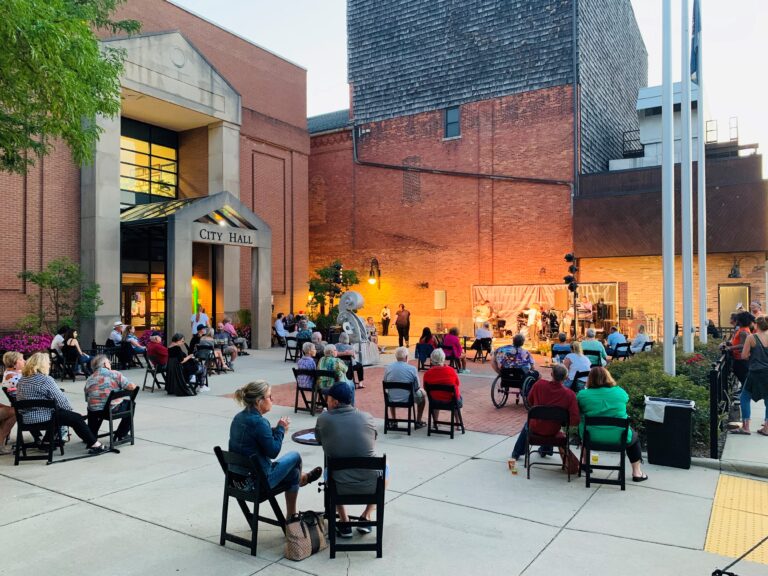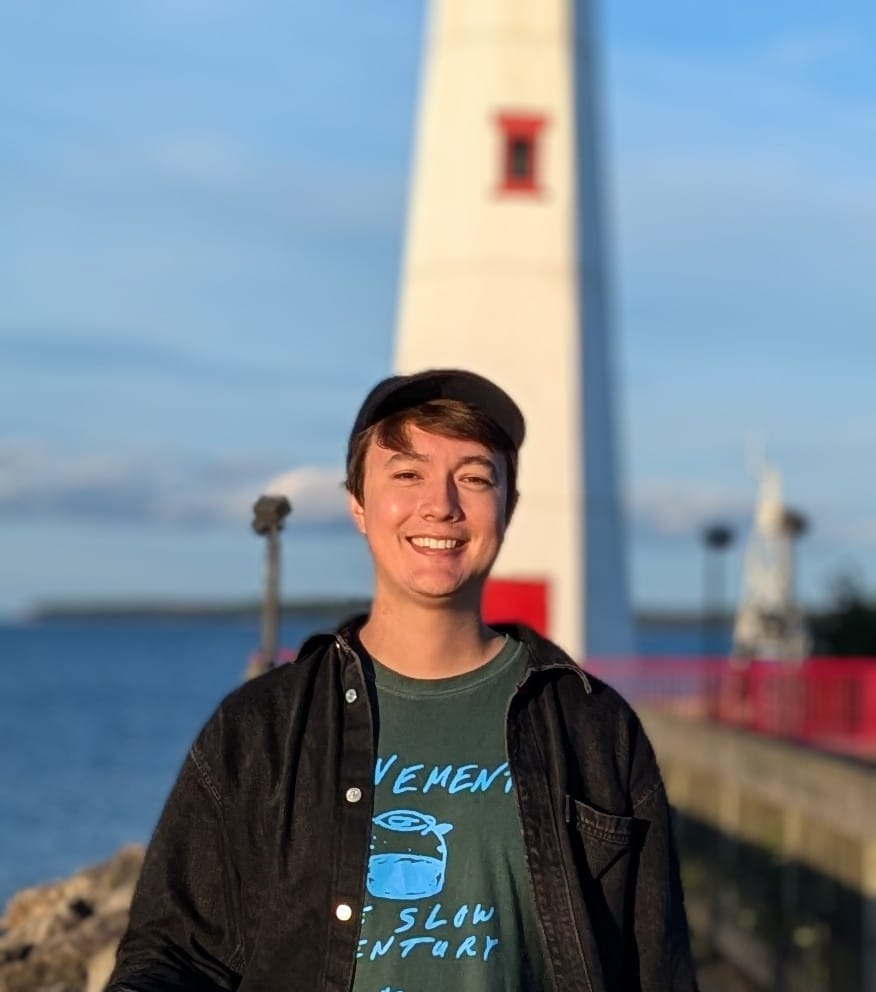
Trevor Odelberg recently completed his Ph.D. in Electrical and Computer Engineering from the University of Michigan, where he also received a certificate in Science, Technology, and Public Policy from Michigan’s Gerald R. Ford School of Public Policy. As a Research Assistant at the Ford School, Odelberg leveraged his technical background to collaborate on projects with local governments and nonprofits. One of those projects was the Artificial Intelligence Handbook for Local Government, which he wrote in partnership with the Michigan Municipal League and is one of the few resources on artificial intelligence (AI) tailored to cities. Odelberg is currently a AAAS fellow in the U.S. Congress, but he reflects on his policy roots and how he got his start at the local level.
LZ: How did you first become interested in science policy?
Odelberg: I did my Ph.D. at the University of Michigan in electrical engineering and worked on microelectronics and integrated circuit design. During my Ph.D., I saw a flyer for a 1-credit seminar on science policy. I was really lucky there was a program through the Ford School of Public Policy that I could take classes in. Then I slowly got more involved.
It was kind of scary because I was in classes with people who were much better at writing and reading than I was, or at least it felt that way. But the reception was very positive. The professors were excited to have engineers in the classes and wanted that expertise.
As scientists and engineers, we like thinking about systems and often see our work as nonpolitical. I was working on technical problems that were interesting. But on a deeper level, I always found myself thinking: where is the bigger picture with some of these technologies? What are going to be the impacts? How is this going to interact with people?
I found policy was a great way to satisfy that curiosity because I could start to see how science doesn’t exist in a mathematical vacuum and how policymakers think about the impact on people’s lives. It was a natural fit.
LZ: How did the idea of the AI Handbook for Local Government come about?
Odelberg: The Ford School has a small think tank called the Community Partnerships Initiative that works with local nonprofits and governments. These groups are often resource-constrained and don’t have much ability to conduct stretch research, especially on technical topics.
One of those groups was the Michigan Municipal League, a coalition representing municipalities across the state. They were hearing from a lot of mayors and city officials who wanted to learn more about AI. The average municipality in Michigan is quite small, on the order of 10,000 to 20,000 people. These cities were being approached by AI vendors but didn’t have guidance on how to evaluate whether AI was safe or a good idea. The Michigan Municipal League reached out, and I became the technology advisor.

When you look online, there is some high-level guidance from the EU and the U.S. federal level, but it hasn't trickled down to the local level. Small cities don’t have many staff and want to know how AI can help them be more efficient. They have different concerns compared to large cities, but there was nothing out there for them.
The mission statement was to create a handbook that was actionable and accessible to help anyone who has never interacted with AI before get up to speed.
LZ: How did you go about researching and writing this AI handbook? What resources did you draw upon?
Odelberg: The first thing was compiling all the existing guidelines, and there are not that many. The most comprehensive AI recommendations out there were from the city of Boston. Seattle has some as well. They were really helpful, but those are bigger cities than what I was targeting, and I still had to take a leap to create guidelines we thought were most appropriate.
I did some interviews with local officials to find out what questions they had. They were not existential but practical—if I have a chatbot for my city or if my employees use ChatGPT, is it safe? It quickly became obvious that the most common type of AI people interact with is going to be generative AI tools like ChatGPT, Copilot and Gemini.
I also leaned on expertise within the University of Michigan’s engineering school. I have some background in AI and understand many underlying algorithms, but I’m not a computer scientist. I have friends who earned their Ph.D.s in this topic, and I asked them to help me explain how AI works in a simplified sense to make sure I wasn’t losing any accuracy. The section in the handbook that covers how AI works has no math and no technical language. I purposely tried to avoid jargon or acronyms.
LZ: Who is using the handbook now?
Odelberg: The handbook was very well received. It was written over the course of the summer and then presented at the Michigan Municipal League annual convention, which has hundreds to thousands of attendees. In one session, copies of the handbook were printed out and were all taken by about 200 attendees, including, mayors and officials from all over Michigan.
The appetite for the handbook has been bigger than expected. It’s definitely being used within Michigan but also starting to get some traction out of state, as well. There have been a few interview requests, including at the federal level at the Department of Housing and Urban Development. I also did an interview with a local NPR station in Austin, Texas, which is considering using AI for building permits.
LZ: Earlier, you mentioned that you worked on other projects during your time at the Ford School of Public Policy. What else have you been involved in?
Odelberg: One project I worked on the most was with the city of Detroit and its Office of Digital Inclusion. They received funding to install municipal fiber, especially for some of the most underserved neighborhoods in Detroit. I resonated with this topic because I believe the internet is a right and not a luxury anymore. You need it to get a job. You need it to learn. The ask was to investigate municipal fiber models that other cities have used. At first, I was writing an educational document, but it evolved into hands-on advocacy and getting community buy-in.
LZ: What advice do you have for other scientists and engineers who want to become civically engaged in their communities?
Odelberg: My first advice is to be confident and lean into your expertise. The biggest hurdle is oftentimes feeling comfortable in those policy spaces. Engineers and scientists are conservative by nature. We know what we know; we don't like to overreach. But our experiences and ability to work through the gray area are needed in those spaces. When I say I have a Ph.D. in electrical engineering, policymakers are always really interested and don’t see that as a con.
Second, every city has nonprofits and city councils, but there aren’t many people lining up to do these jobs, especially in smaller cities. It’s not as competitive as you think, and you can explore small ways to get involved, including part-time or on the weekends. People with technical backgrounds can make a lot of impact—more than you realize.
Do you have a story to tell about your own local engagement or of someone you know? Please submit your idea here , and we will help you develop and share your story for our series.